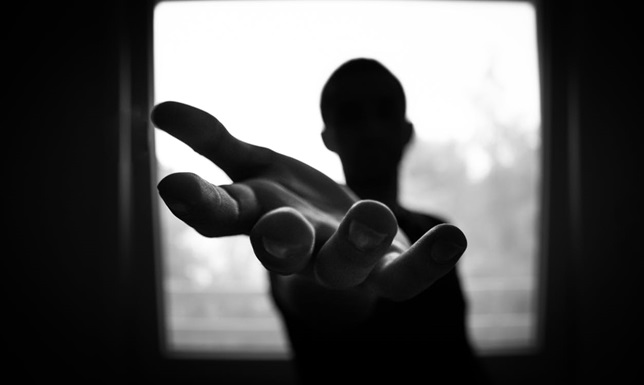Warning, spoilers ahead.
If you’re as much of a Netflix junkie as we are, you will have already binge watched all 6 episodes of the latest Black Mirror season. Once again, Charlie Brooker capitalises on very real technologies to play on our most primitive fears and complex modern concerns. Some of his stories seem slightly fanciful in their own way – like the ultimate VR experience of Playtest or the android reconstructions of the dead in ‘Be Right Back’. But the reason Brooker’s stories send chills down the spine of viewers is simple – they could be real. Unlike ultra-violent horror stories designed to scare, each Black Mirror episode instils fear because it could easily happen in our future. Some of them are even happening now.
The Dangers Of Technology
A running theme throughout all Black Mirror episodes is a warning about the dangers of modern technology. This could be something as innocent looking as social media (as covered in ‘Nosedive’ and ‘Hang The DJ’), the future possibilities of virtual reality technology (seen in ‘USS Callister’ and ‘Playtest’), or the more sinister aspects of human nature (such as ‘Black Museum, ‘Arkangel’ and ‘The Entire History of You). Every episode plays on the idea that technology is fundamentally changing who we are, and how we interact with the world and each other.
But another clear theme is the concept of hacking and its evolution, something that we at Bridewell take a great interest in as the anti-hackers of the world. Brooker’s ominous take on the use of technology for good and for evil is fascinating, and throws an uncomfortable light on the realities of hacking in our society. We could spend hours combing through each episode, but instead we want to focus on 2 episodes in particular and how they relate to hacking incidents in the real world and the human factor involved.
Shut Up And Dance
Let’s start with the most obvious hacking episode. ‘Shut up and dance’ is an episode in which the protagonist, a teenage boy called Kenny, finds himself the victim of a hacker. In the privacy of his room one night, Kenny goes to his computer and is seen unzipping his trousers and reaching for tissues. Minutes later, he gets an email from an anonymous account, which reads, “WE SAW WHAT YOU DID.” Then another: “REPLY WITH YOUR PHONE NUMBER OR WE POST THE VIDEO TO EVERYONE IN YOUR CONTACTS.” Kenny does as they say, terrified that they will leak the video, and the events that follow become more and more horrifying as they unfold.
Kenny meets various other people along the way, all of whom are being blackmailed in the same way. And the horrifying twist – despite the fact that Kenny has done everything the hackers demanded (including rob a bank and killed someone) – they unleash the information they have on him anyway with a slightly altered detail, leading to Kenny’s arrest. While this scenario seems a little extreme – the fact is this kind of incident can, and does, happen every single day.
The Power Of Shame
While the episode is ostensibly a window into the world of hacking, its message is actually more about shame, and how people can be easily manipulated through fear. As a society we have created something of a shame culture – and that makes us very susceptible to blackmail. If we make a mistake, even a small one, most people’s first instinct is to hide it. We are automatically afraid of what will happen, so rather than admit we made the mistake, we try to fix it, hide it or deal with it in some other way. That’s nobody’s fault – it’s just a by-product of the culture we live in.
All of the characters in black mirror are afraid of their secrets – their mistakes – getting out. They aren’t afraid of the legal ramifications either – they are worried about what people might think. And that’s the nub of it. If Kenny and the various desperate people they meet along their way to the bottom didn’t feel deep shame about the things they had done, the hackers would have no leverage. The episode would go nowhere, be nothing.
But What Does That Mean For Businesses?
You might be wondering – why is a company that helps businesses stay secure going on about a TV show? Well, we’re doing it because it’s relevant to how a business should approach cyber security. Almost 90% of cyber security and data breaches are caused by human error or human behaviour. In other words – people who make mistakes. Now in some of these incidents, people might not even know they’ve made the mistake. But in many others, the responsible party knows but is too ashamed or scared to tell anyone about it.
As a result, it goes unnoticed and a breach occurs costing the business time and money. But if businesses can break down this barrier, by implementing policies to protect those who make mistakes, or anonymous reporting, businesses stand a much better chance of protecting themselves against data breaches. If businesses can ensure people feel safe about reporting their mistakes without ramification, millions of data breaches could be avoided every year.
At Bridewell, we work with businesses across the country to help them understand and improve their cyber defences. This means not only looking at your cyber defences, but your physical security and your employee knowledge awareness as well. Our cyber security consultants can work with you to help you protect your business from attack from every angle.





